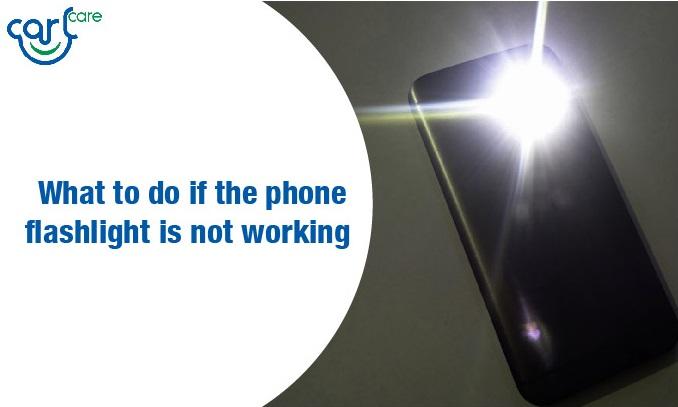Photo: depositphoto.com
Q: Help! My flashlight won’t light up. I’ve only had it for a few months, so age isn’t the issue. Why is my flashlight not working? I’d appreciate any troubleshooting advice you can provide.
A number of causes can prevent a flashlight from working, ranging from the obvious dead batteries to the not so obvious corroded connections. Flashlights consist of a series of metal contacts that create a circuit between the battery and the bulb. If either the contacts or the battery fail, even the best flashlight won’t work.
Luckily, most problems that cause a flashlight to malfunction are often easy to fix without the need for any special tools. The following are the most common issues that cause a flashlight to malfunction and ways you can fix them.
While this may seem obvious, more often than not, the culprit is the batteries. Most of the time, identifying a dying battery is easy. As batteries discharge, they release less and less power, causing most flashlights’ lamps to fade slowly from bright to dim before going out entirely.
If the flashlight has been sitting idle for an extended period, the batteries inside may have slowly discharged. While it typically takes a long time for this to happen, storing a flashlight with batteries in a hot environment can shorten the battery life. Rechargeable flashlights (and those using rechargeable batteries) will lose their charge more quickly when they sit idle.
You might also have a flashlight that uses regulated output, which allows the batteries to deliver a steady stream of light instead of slowly fading. When these batteries finally give up, the light won’t gradually fade. Instead, the light just suddenly cuts off.
AdvertisementPhoto: depositphoto.com
A flashlight switch has two metal contact strips. When you push the switch to the on position, the strips contact the lamp and the batteries, completing the circuit and causing the bulb to light up.

Sometimes these contacts become corroded due to exposure to moisture, preventing one or both of the contact strips from making a clean connection. When this happens, the electrical current won’t pass through the corroded metal to complete the circuit. These contacts may also become bent or damaged, preventing the contacts from touching either the battery spring or the lamp.
If you can access the contact strips under the switch, clean them with a little bit of vinegar and check to make sure they haven’t become damaged or bent.
Related: 15 Things You Should Have At the Ready in Case the Power Goes Out
In addition to the two metal strips in the switch, there are brass or copper contacts that touch the battery. These contacts typically consist of a spring and a flat metal piece, both of which are accessible via the battery case. The spring comes into contact with the negative end, creating tension that pushes the positive end against the flat piece. This creates a connection that completes the circuit in the flashlight, lighting the lamp.
Since the spring is typically made from thin metal, it’s possible for it to become bent so that it either no longer comes into contact with the battery or doesn’t create enough tension to push against the opposing flat metal piece. When this occurs, the connection is broken and the flashlight ceases to light. Open the battery case and examine these parts. If it appears the spring isn’t doing its job, pull it outward a few millimeters to give the spring more tension.
AdvertisementLike the contacts in the switch, the battery contacts also can become corroded either from moisture or even acid from a leaking battery. If corrosion is affecting these pieces, clean the batteries with a little isopropyl alcohol.
Photo: depositphoto.com
It should be clear now that whether a flashlight works or not is largely dependent on the metal contacts that create the electrical circuit inside the flashlight. If any one of these contacts fails to work properly, the electrical circuit will not complete, and the flashlight won’t light.
If dirt gets inside the flashlight, it can work its way between the battery and its contacts or the flashlight switch and its contacts, breaking the circuit. To clean, open the flashlight and remove the batteries. Use a cotton swab to clean all visible dirt inside the battery compartment. If the contacts are dirty, apply a little rubbing alcohol with the swab to clean them off.
Related: The Best Keychain Flashlights to Carry With You
O-rings are the rubber gaskets that fit around the parts of the flashlight that open, such as the battery compartment and lamp. These rubber rings prevent water and dirt from getting inside of the flashlight when the compartments are closed and the flashlight is in use. They’re especially important for flashlights that see rugged use, such as tactical or camping flashlights.
If you find dirt or moisture on the inside of your flashlight, then it means the O-rings aren’t doing their job. Over time these rubber O-rings will wear, dry out, and crack, rendering them unable to perform their duties. Check the O-rings on your flashlight. If they appear damaged, replace them with new O-rings. If the O-rings look intact but appear to be a little dry, then apply a little silicone lubricant to them.
AdvertisementPhoto: depositphoto.com









